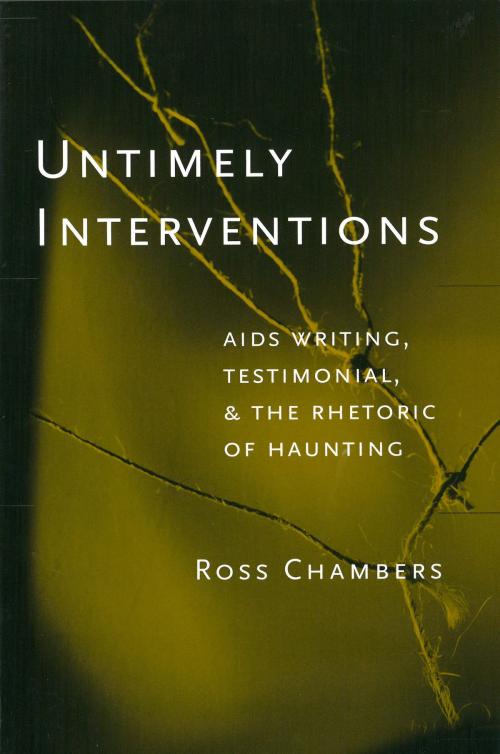Untimely Interventions
AIDS Writing, Testimonial, and the Rhetoric of Haunting
Nonfiction, Social & Cultural Studies, Social Science, Cultural Studies, Popular Culture, Fiction & Literature, Literary Theory & Criticism| Author: | Ross Chambers | ISBN: | 9780472024391 |
| Publisher: | University of Michigan Press | Publication: | December 22, 2009 |
| Imprint: | University of Michigan Press | Language: | English |
| Author: | Ross Chambers |
| ISBN: | 9780472024391 |
| Publisher: | University of Michigan Press |
| Publication: | December 22, 2009 |
| Imprint: | University of Michigan Press |
| Language: | English |
As atrocity has become characteristic of modern history, testimonial writing has become a major twentieth-century genre. Untimely Interventions relates testimonial writing, or witnessing, to the cultural situation of aftermath, exploring ways in which a culture can be haunted by its own history.
Ross Chambers argues that culture produces itself as civilized by denying the forms of collective violence and other traumatic experience that it cannot control. In the context of such denial, personal accounts of collective disaster can function as a form of counter-denial. By investigating a range of writing on AIDS, the First World War, and the Holocaust, Chambers shows how such writing produces a rhetorical effect of haunting, as it seeks to describe the reality of those experiences culture renders unspeakable.
Ross Chambers is Professor of Romance Languages at the University of Michigan. His other books includeFacing It: AIDS Diaries and the Death of the Author.
As atrocity has become characteristic of modern history, testimonial writing has become a major twentieth-century genre. Untimely Interventions relates testimonial writing, or witnessing, to the cultural situation of aftermath, exploring ways in which a culture can be haunted by its own history.
Ross Chambers argues that culture produces itself as civilized by denying the forms of collective violence and other traumatic experience that it cannot control. In the context of such denial, personal accounts of collective disaster can function as a form of counter-denial. By investigating a range of writing on AIDS, the First World War, and the Holocaust, Chambers shows how such writing produces a rhetorical effect of haunting, as it seeks to describe the reality of those experiences culture renders unspeakable.
Ross Chambers is Professor of Romance Languages at the University of Michigan. His other books includeFacing It: AIDS Diaries and the Death of the Author.















